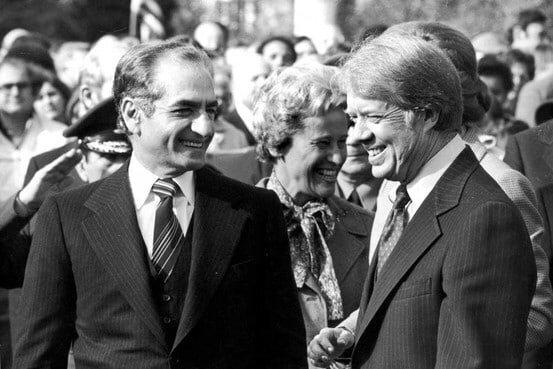The day Carter broke US ties with Iran

TEHRAN – Former U.S. President Jimmy Carter severed his country’s diplomatic relations with Iran on April 7, 1980.
After declaring the cutting off of ties between Tehran and Washington, Carter ordered all Iranian diplomats to leave the United States within 24 hours.
Carter threatened Iran, saying that it would pay a heavy price for not releasing the American captives. The U.S. president took the action after the late founder of the Islamic Revolution in Iran, Imam Khomeini, approved of the U.S. Embassy takeover by Iranian students in Tehran that had taken place a few months earlier.
The revolutionary students were requesting that Washington return the brutal dictator Mohammad Reza Shah. The fugitive shah had arrived in New York on October 22, 1979, after securing President Carter’s permission, angering the Iranian revolutionaries. The U.S. Embassy takeover took place thirteen days later, taking sixty-six Americans captives, and demanded that the shah be extradited.
Five women and eight Black men were released in November, and another captive was released in July due to health problems. The remaining fifty-two people spent 444 days in captivity on suspicion of being spies.
In reaction to Carter’s announcement of breaking diplomatic relations with Iran, the late Leader of the Islamic Revolution Imam Khomeini said that the move by the U.S. president would benefit the impoverished Iranian nation.
“I received the news on the decision to sever ties between Iran and the United States. It was the best thing Carter could have done in his life as it would benefit the oppressed Iranian nation. The oppressed would be better off after breaking those ties. In the relationship between a nation (Iran) that has revolted to free itself from the domination of imperialists and colonialists, the oppressed nation is always the loser, and the colonialist is the winner. We consider this breaking of ties as a blessing because it proves that America cannot exploit Iran anymore. I have repeatedly pointed out that our relationship with international colonialists like America is a kind of relationship between an oppressed nation and imperialists…You, dear Iranian nation, will come out victorious and get over the hardships,” Imam Khomeini said.
After the seizure of the embassy, U.S. animosity toward Iran entered a new phase. The blocking of Iranian properties and the imposition of sanctions have continued unabated to date.
The U.S. hostility has angered the Iranians more than the Iranian officials in contrast to what has been claimed by the U.S. officials who claim that the sanctions have not targeted the ordinary Iranians.
The severing of relations with Iran was not a wise move. The subsequent sanctioning policy that Washington has pursued since the Islamic Revolution in 1979 has irritated the Iranian people as those pressures primarily targeted their livelihoods rather than those of the Iranian government’s officials.
For years, the United States has seized Iranian assets, depriving the Iranian nation of its oil revenues.
The Leader of the Islamic Revolution Ayatollah Seyyed Ali Khamenei has most recently rejected U.S. President Donald Trump’s call for direct talks amid the Maximum Pressure campaign exercised by Washington against the Iranian nation.
Iran has always said it seeks engagement and equal relations with all countries in the world. In the absence of diplomatic relations, Pakistan serves as Iran's protecting power in the United States, while Switzerland serves as the United States' protecting power in Iran.
Leave a Comment